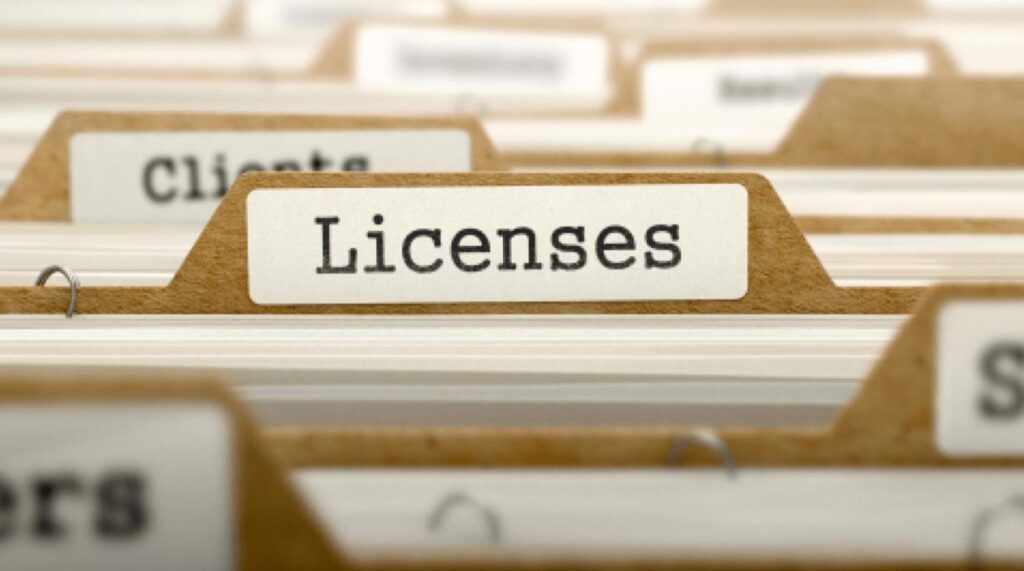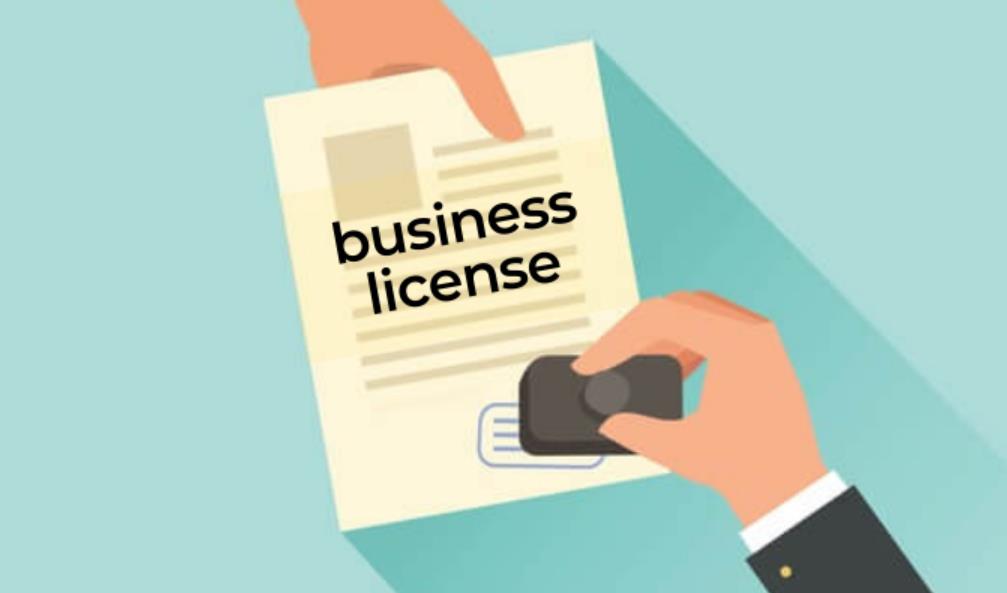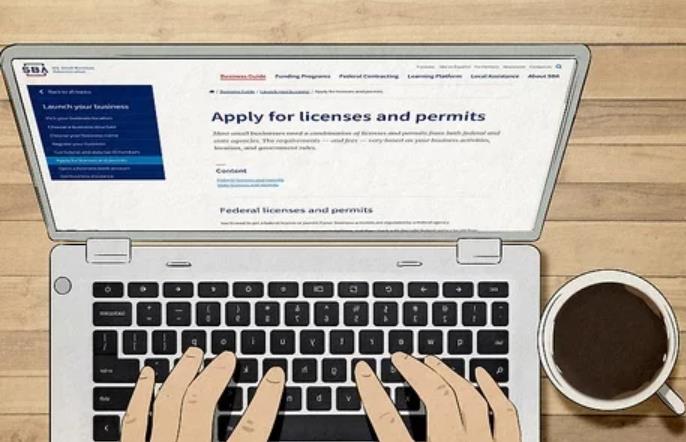Have you ever wondered Do You Need A Business License For Print On Demand? A lot of people ask this question when they are planning to start a Print On Demand (POD) business. Understanding the legal requirements is essential for running a successful business.
Key Takeaways
- Understanding the Legal Requirements: Knowing whether you need a business license for your Print On Demand business is crucial.
- Types of Business Licenses: Different types of licenses may be required depending on your location and business model.
- Consequences of Not Having a License: Operating without the necessary licenses can lead to penalties.
Do You Need A Business License For Print On Demand?
The straightforward answer is that it depends. The requirements for a business license vary depending on your location, the scale of your business, and the products you are selling.

Types Of Business Licenses
When it comes to operating a Print On Demand business—or any business, for that matter—there are several types of business licenses you may need to consider. The requirements can vary depending on your jurisdiction, the nature of your business, and other specific factors. Here are some common types:

General Business License
A General Business License is the most basic form of business license that almost every business owner needs to obtain. This license allows you to operate within a certain geographical area, whether it’s a city, county, or state. It ensures that you are registered to do business in your local jurisdiction.
Home Occupation Permit
If you’re running your Print On Demand business from home, you may need a Home Occupation Permit. This permit is required for businesses that operate in residential areas and ensures that the business will not disrupt the peace and safety of the neighborhood.
Seller’s Permit
Also known as a Sales Tax Permit, this license is essential for businesses that sell goods or services that are subject to sales tax. If you’re selling printed merchandise, you’ll likely need this permit to collect sales tax from customers.
Federal Licenses and Permits
Certain types of businesses require federal licenses or permits. For example, if you’re selling products that are regulated by a federal agency—such as alcohol, tobacco, or firearms—you’ll need a federal license.
Specialized Licenses
Some products may require specialized licenses. For instance, if you’re selling copyrighted material or products that fall under specific categories like food or healthcare, you may need additional permissions or certifications.
Online Business License
Some jurisdictions require an Online Business License for businesses that operate exclusively online. This is a relatively new type of license and is not universally required, so it’s essential to check local regulations.
Consequences Of Not Having A License
Operating a business without the required licenses can lead to a range of consequences, both legal and financial. Here are some of the most common outcomes you could face:

Legal Penalties
One of the most immediate consequences is legal action. Authorities can impose fines or even shut down your business if you’re caught operating without the necessary licenses. The severity of the penalties often depends on the jurisdiction and the nature of the offense.
Financial Consequences
In addition to legal penalties, you may also face financial consequences. Fines can be hefty, and the cost of legal defense can add up quickly. Moreover, you may be required to pay back taxes with interest if you’ve been operating without a license that involves tax collection, like a Seller’s Permit.
Loss of Business Reputation
Operating without a license can severely damage your business reputation. Customers and partners may lose trust in your business, which can be devastating for a small business or a startup. Negative reviews and word-of-mouth can spread quickly, affecting your sales and growth.
Difficulty in Securing Business Relationships
Without a business license, you may find it challenging to form partnerships or secure contracts. Many companies require proof of licensing before entering into a business relationship. This can limit your opportunities for expansion and collaboration.
Personal Liability
If you’re operating without a business license, you may not have the legal separation that a formal business structure provides. This could expose you to personal liability, meaning your personal assets could be at risk in the event of a lawsuit against your business.
How To Apply For A Business License?
The process of applying for a business license can vary depending on your jurisdiction and the type of business you’re starting. However, there are some general steps that most business owners will need to follow:

Research Requirements
The first step is to research the specific requirements for your business type and location. This may involve visiting your local government’s website or contacting the appropriate department to find out what licenses and permits you need.
Gather Necessary Information
Once you know what’s required, gather all the necessary information. This could include your business name, address, tax identification number, and details about the nature of your business.
Complete the Application
The next step is to complete the application form. This can often be done online, although some jurisdictions may require a paper application. Make sure to fill out all the required fields accurately to avoid delays.
Pay the Fee
Most business licenses come with an application fee. The amount can vary widely depending on your location and the type of license you’re applying for. Payment methods can include online payments, checks, or money orders.
Submit Additional Documentation
Some types of licenses may require additional documentation, such as background checks, inspections, or proof of professional qualifications. Make sure to submit all required documents in a timely manner.
Wait for Approval
After submitting your application and any required documents, you’ll need to wait for approval. The time frame can vary, so it’s essential to check the estimated processing time for your specific license.
Renew as Needed
Finally, keep in mind that most business licenses are not permanent and will need to be renewed periodically. Make sure to keep track of expiration dates and renew your license as needed.
Benefits Of Having A Business License
Obtaining a business license is not just a legal formality; it offers several tangible benefits that can contribute to the success and growth of your business. Here are some of the key advantages:
Legal Protection
One of the most obvious benefits is legal protection. A business license ensures that you are operating within the law, reducing the risk of legal issues, fines, or even the closure of your business.
Business Credibility
Having a business license adds a layer of credibility and legitimacy to your operation. Customers are more likely to trust a licensed business, which can be a significant advantage in competitive markets.
Source: General knowledge and research.
Access to Business Accounts and Loans
Many financial institutions require proof of a business license to open a business bank account. Having a separate account for your business is essential for financial management and may also be a prerequisite for securing business loans or credit.
Easier Tax Management
With a business license, you can obtain a Federal Employer Identification Number (EIN), which makes it easier to file taxes. It also allows you to hire employees legally and take advantage of business tax deductions.
Vendor Benefits
Some wholesalers and manufacturers only do business with licensed businesses. Having a business license can give you access to better prices and higher-quality goods, which can ultimately benefit your customers and your bottom line.
Business Expansion and Partnerships
A business license can make it easier to expand your business or enter into partnerships. Many companies require proof of licensing before they will enter into a business relationship with you, which can open doors to new opportunities.
Risks Of Operating Without A License
Operating a business without the required licenses can lead to a range of consequences, both legal and financial. Here are some of the most common outcomes you could face:
Legal Penalties
One of the most immediate consequences is legal action. Authorities can impose fines or even shut down your business if you’re caught operating without the necessary licenses. The severity of the penalties often depends on the jurisdiction and the nature of the offense.
Financial Consequences
In addition to legal penalties, you may also face financial consequences. Fines can be hefty, and the cost of legal defense can add up quickly. Moreover, you may be required to pay back taxes with interest if you’ve been operating without a license that involves tax collection, like a Seller’s Permit.
Loss of Business Reputation
Operating without a license can severely damage your business reputation. Customers and partners may lose trust in your business, which can be devastating for a small business or a startup. Negative reviews and word-of-mouth can spread quickly, affecting your sales and growth.
Difficulty in Securing Business Relationships
Without a business license, you may find it challenging to form partnerships or secure contracts. Many companies require proof of licensing before entering into a business relationship. This can limit your opportunities for expansion and collaboration.
Personal Liability
If you’re operating without a business license, you may not have the legal separation that a formal business structure provides. This could expose you to personal liability, meaning your personal assets could be at risk in the event of a lawsuit against your business.
How To Renew Your Business License?
Business licenses are generally not permanent and need to be renewed periodically to ensure you continue to operate legally. Here’s how to go about it:

Check Expiration Dates
The first step in renewing your business license is to check its expiration date. This information is usually printed on the license itself or can be found in the documentation you received when you first obtained it.
Understand Renewal Requirements
Each jurisdiction may have different requirements for renewal, including fees, forms, and additional documentation. Make sure you understand what is required to renew your specific type of license.
Update Business Information
Before renewing your license, ensure that all your business information is up to date. This includes your business address, contact details, and any other relevant information that may have changed since you first obtained the license.
Complete Renewal Application
Most jurisdictions offer an online portal where you can complete the renewal application. Some may still require a paper application to be submitted. Fill out all necessary fields and attach any required documents.
Pay Renewal Fees
Just like the initial application, renewals usually come with a fee. The amount can vary depending on your jurisdiction and the type of license. Make sure to pay the fee before the deadline to avoid late charges or penalties.
Submit and Wait for Approval
After completing the application and paying the fees, submit your renewal application. The approval process may take some time, so it’s advisable to start the renewal process well before your current license expires.
Keep Records
Once your renewal is approved, you’ll receive a new license or a renewal certificate. Keep this document in a safe place and make sure to update any displayed licenses in your place of business, if applicable.
Do I Need A Business License To Sell On Printify?
The requirement for a business license to sell on Printify largely depends on your jurisdiction and the nature of your business. In the United States, for example, you generally need a business license to operate any form of business, including selling on Printify.

However, Printify itself does not specifically require you to have a business license to use its platform. It’s crucial to consult local laws and regulations to determine if you need a license.
Can I Sell On Shopify Without A Business License?
Technically, you can start selling on Shopify without a business license. Shopify does not require you to have one to open a store on their platform. However, it’s important to note that operating without a business license could be illegal depending on your local, state, or federal laws. It’s always best to consult with legal professionals and understand the requirements in your jurisdiction before starting any business.
Do I Need A Business License To Sell Digital Products On ETSY?
Etsy does not require sellers to have a business license to sell digital or physical products. However, depending on your jurisdiction, you may still need a business license to operate legally. Some locations require a general business license, while others may require a special permit for online businesses. Always check your local and state laws to ensure you’re in compliance.

Can You Start A Brand On Print On Demand?
Yes, you can definitely start a brand using Print On Demand services. Print On Demand platforms like Printify, Teespring, or Redbubble allow you to create custom designs and sell them under your own brand name.
However, if you’re planning to scale your business, it’s advisable to register your brand name and obtain the necessary business licenses to protect your intellectual property and operate legally.
Conclusion
In summary, having a business license for Print On Demand is not just a legal requirement but also beneficial for your business in many ways. Make sure to stay updated on the laws and regulations to keep your business running smoothly.
People Also Ask
What types of business licenses are commonly required for Print On Demand?
The most common type of license is a general business license. However, you may also need specialized licenses for selling copyrighted material or other specific products.
What are the penalties for operating a Print On Demand business without a license?
Operating without a license can result in various penalties, including fines, legal actions, and even the closure of your business.
How do I apply for a business license for my Print On Demand business?
The application process usually involves researching local requirements, filling out an application form, and paying a fee. The process can vary depending on your location.
Can I operate my Print On Demand business from home without a license?
Even if you’re operating from home, you may still need a business license. Some jurisdictions require a home occupation permit for businesses run from residential areas.
A multifaceted professional, Muhammad Daim seamlessly blends his expertise as an accountant at a local agency with his prowess in digital marketing. With a keen eye for financial details and a modern approach to online strategies, Daim offers invaluable financial advice rooted in years of experience. His unique combination of skills positions him at the intersection of traditional finance and the evolving digital landscape, making him a sought-after expert in both domains. Whether it’s navigating the intricacies of financial statements or crafting impactful digital marketing campaigns, Daim’s holistic approach ensures that his clients receive comprehensive solutions tailored to their needs.









